
Fez is a 2012 indie puzzle-platform game developed by Polytron Corporation and published by Trapdoor. The player-character Gomez receives a fez that reveals his two-dimensional (2D) world to be one of four sides of a three-dimensional (3D) world. The player rotates between these four 2D views to realign platforms and solve puzzles. The objective is to collect cubes and cube fragments to restore order to the universe.

Kellee Santiago is a Venezuelan American video game designer and producer. She is the co-founder and former president of thatgamecompany. Santiago was born in Caracas, Venezuela, and raised in Richmond, Virginia, where Santiago played video games from a young age and was encouraged by her software engineer father to experiment with computers. While attending New York University's Tisch School of the Arts, she became active in experimental theater, planning to pursue it after earning a master's degree in the Interactive Media Program of the School of Cinematic Arts at the University of Southern California. However, Santiago became involved in video game design and produced Cloud, a game developed by Jenova Chen and a student team. Its success sparked her and Chen to found thatgamecompany upon graduating, and she became the president.

The Ouya, stylized as OUYA, is an Android-based microconsole developed by Ouya Inc. Julie Uhrman founded the project in 2012, bringing in designer Yves Béhar to collaborate on its design and Muffi Ghadiali as VP of Product Management to put together the engineering team. Development was funded via Kickstarter, raising US$8.5 million, becoming one of the website's highest earning projects in its history.

The Xbox One is a home video game console developed by Microsoft. Announced in May 2013, it is the successor to Xbox 360 and the third console in the Xbox series. It was first released in North America, parts of Europe, Australia, and South America in November 2013 and in Japan, China, and other European countries in September 2014. It is the first Xbox game console to be released in China, specifically in the Shanghai Free-Trade Zone. Microsoft marketed the device as an "all-in-one entertainment system", hence the name "Xbox One". An eighth-generation console, it mainly competed against Sony's PlayStation 4 and Nintendo's Wii U and later the Switch.

MOJO, stylized as M.O.J.O., is an Android-based video game microconsole manufactured by Mad Catz.

A microconsole is a home video game console that is typically powered by low-cost computing hardware, making the console lower-priced compared to other home consoles on the market. The majority of microconsoles, with a few exceptions such as the PlayStation TV and OnLive Game System, are Android-based digital media players that are bundled with gamepads and marketed as gaming devices. Such microconsoles can be connected to the television to play video games downloaded from an application store such as Google Play.

Green Throttle Games is a video game and video game peripheral developer.
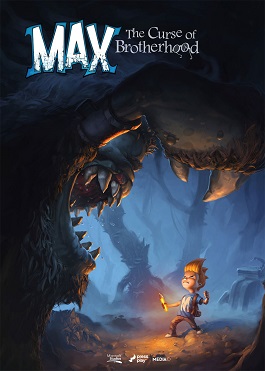
Max: The Curse of Brotherhood is a puzzle-platform video game developed by Press Play for Xbox One, Microsoft Windows, Xbox 360, Nintendo Switch and later on PlayStation 4. The game was announced during Microsoft's E3 2013 press event. It is a sequel to Press Play's previous work, the 2010 game Max & the Magic Marker.

Below is an action-adventure game developed by Capybara Games. The game was announced during Microsoft's E3 2013 press event, and was indefinitely delayed in 2016. It initially released on Microsoft Windows and Xbox One on December 14, 2018, with a PS4 port released in 2020. The game received mixed reviews upon release.
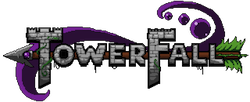
TowerFall is an action indie video game created by Maddy Thorson through her company Maddy Makes Games. In the game, players control up to four archers in a multiplayer platform fighter. It was released on the Ouya microconsole in June 2013 and was later ported to PlayStation 4, Xbox One, Linux, OS X, and Windows as TowerFall Ascension and to the Nintendo Switch under its original title of TowerFall.

Monument Valley is a puzzle and indie game by Ustwo Games. The player leads the princess Ida through mazes of optical illusions and impossible objects while manipulating the world around her to reach various platforms. Monument Valley was developed over ten months beginning in early 2013 based on concept drawings by company artist Ken Wong. Its visual style was inspired by Japanese prints, minimalist sculpture, and indie games Windosill, Fez, and Sword & Sworcery, and was compared by critics to M. C. Escher drawings and Echochrome. The art was designed such that each frame would be worthy of public display.

That Dragon, Cancer is an art video game created by Ryan and Amy Green, Josh Larson, and a small team under the name Numinous Games. The game is an autobiography based on the Greens' experience of raising their son Joel, who was diagnosed with terminal cancer at twelve months old. Though only given a short time to live, Joel survived for four more years before succumbing to the cancer in March 2014.
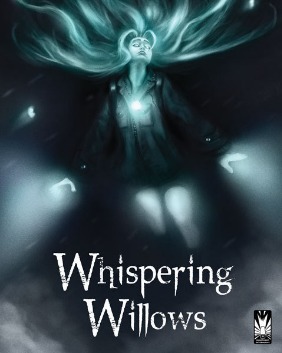
Whispering Willows is an indie adventure horror video game developed by independent developer Night Light Interactive for Ouya in May 2014.

Hundreds is a puzzle video game where players touch circles to make them grow without overlapping. In the game's 100 levels, the player interacts with different types of circles to bring a counter to the number 100. The game was developed and published by Semi Secret Software in collaboration with Greg Wohlwend and was released for iOS on January 7, 2013, and on Android later that year.

Asher Vollmer is an American indie video game developer. He created Puzzlejuice and Threes. Vollmer also worked on Guildlings and Beast Breaker.
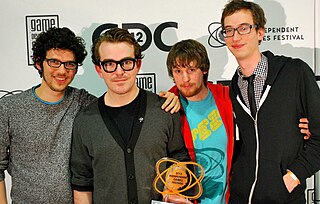
The high-profile and protracted five-year development of the video game Fez led to its status as an "underdog darling of the indie game scene". The 2012 puzzle-platform game built around rotating between four 2D views of a 3D space was developed by indie developer Polytron Corporation and published by Polytron, Trapdoor, and Microsoft Studios. Over the course of the game's development, Fez designer and Polytron founder Phil Fish received celebrity status for his outspoken public persona and prominence in the 2012 documentary Indie Game: The Movie, which followed the game's final stages of development and Polytron's related legal issues. The game was released to critical acclaim as an Xbox Live Arcade timed exclusive, and was later ported to other platforms. It had sold one million copies by the end of 2013.
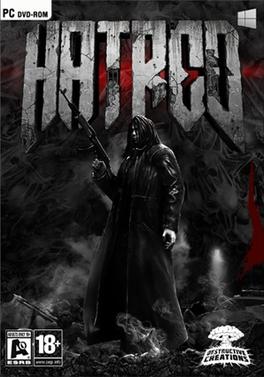
Hatred is an isometric shoot 'em up video game developed and published by Destructive Creations that was released on June 1, 2015, for Microsoft Windows. The player character is a misanthropic mass-killer who begins a "genocide crusade" to kill as many human beings as possible. The developer described Hatred as a reaction to video game aesthetic trends such as political correctness, politeness, vivid color, and games as art. Its October 2014 announcement trailer was characterized as "controversial" by multiple video game journalists. The game was shortly removed by Valve from their Steam Greenlight service due to its extremely violent content but was later brought back with a personal apology from Gabe Newell. It was greenlit for a second time on December 29, 2014, and released on June 1, 2015.
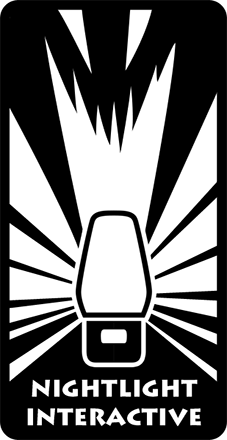
Night Light Interactive, LLC is an American video game company founded in 2012 and based in North Hills, California that has developed the video game Whispering Willows.
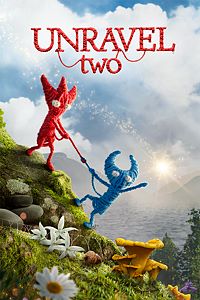
Unravel Two is a 2018 puzzle-platform game developed by Swedish company Coldwood Interactive and published by Electronic Arts. The game is centered around two 'Yarnys', small anthropomorphic creatures made of yarn. It is the sequel to the 2016 game Unravel, and was released for PlayStation 4, Windows, and Xbox One in June 2018 and Nintendo Switch in March 2019.
Scribblenauts is a series of action puzzle video games primarily developed by independent studio 5th Cell. The series is owned and published by Warner Bros. Interactive Entertainment. The first game in the series was titled Scribblenauts and was first released on September 15, 2009, in North America, exclusively on the Nintendo DS. Since the release of the first game, five other Scribblenauts games have been released, in addition to two compilations and two comic adaptations.


















